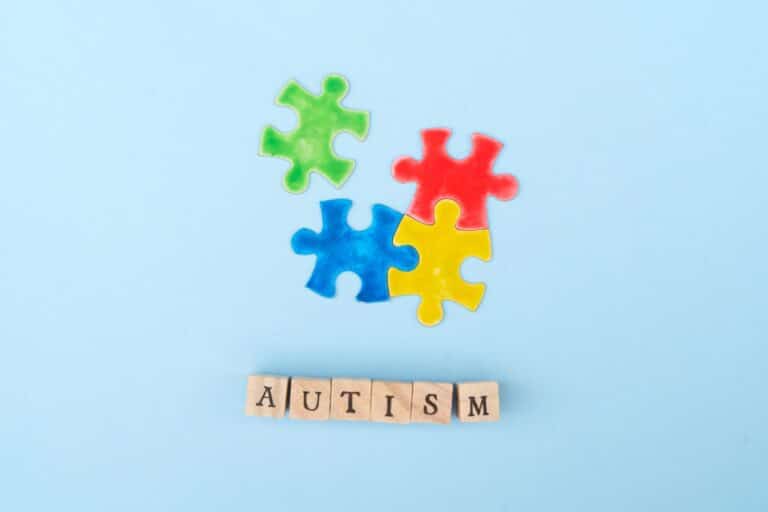A survey conducted by the National Household Survey on Drug Abuse found that around 6 million Americans age 12 and older have used PCP at least once. PCP addiction can cause many negative consequences.
For individuals who are addicted to PCP that want to kick the habit, it is important to have all the facts. Keep reading to find out more about the short & long term effects of PCP, addiction, health risks, treatment, and more.
What Is PCP?
The technical name of PCP is Phencyclidine. PCP is a hallucinogenic schedule II drug and is an illegal drug.
PCP in pure form looks like a white crystalline powder. Pure PCP easily dissolves in alcohol and water. It has a distinctive bitter chemical taste.
PCP that is obtained illicitly can range in color from light to dark brown. The consistency can be anywhere from powdery to a gummy mass. This is because of the contaminants in it.
PCP is a dissociative drug. This type of drug distorts the user’s perceptions of sound and sight. It also creates a feeling of detachment from the self and environment.
PCP Effects
The effects of PCP are far and wide, with some being short-term effects and others are long-term.
The effects of PCP are dependent on how much is taken. In addition, the method of consumption impacts PCP effects. For example, users who smoke PCP will typically begin to feel the effects in two to five minutes.
Users who swallow PCP will experience the effects in 30 to 60 minutes. However, intoxication from PCP ranges in how long it can last. While some users experience the effects from four to eight hours, other users will experience them for 24 to 48 hours.
Long Term Mental Health Effects
The use of PCP can change brain structure and affect mental health. When this happens, it can cause trouble with concentration and perception, difficulty with judgment, and memory issues. These effects can last even after detoxing.
For individuals already at risk, PCP can trigger psychosis. PCP users are also more susceptible to depression and anxiety. In addition, PCP users can experience effects of the drug such as flashbacks, auditory hallucinations, and visual hallucinations even if they have not taken PCP.
Longer-term use of PCP can cause speech problems such as impediments. Changes to the brain can last up to one year after detox.
Long Term Physical Health Effects
The use of PCP puts users at risk of dependence, tolerance, and addiction. However, the physical health side effects do not stop there. With a higher tolerance, an individual who uses PCP is at a higher risk of overdose.
Individuals who use PCP will often go on “runs.” During a run, they will take PCP several times for a few days and not eat or sleep. After the run is over, there will be a long period of sleep.
This can lead to malnutrition and damage to internal organs. In addition, because of how PCP affects the body, users can get harmed from falling, cuts, bruises, burns, or other forms of accidental self-harm. If the injury is serious enough, it could lead to disability.
PCP Addiction
PCP addiction can have consequences that range from legal problems to physical problems and more.
The signs of PCP addiction are far and wide. Even after detoxing from PCP, long-term withdrawal symptoms can last from several months to a year. This is largely dependent on duration, frequency, and level of PCP use.
One reason PCP can be so addictive is the surges of dopamine it sends to the brain. The other effects of PCP, such as a feeling of euphoria, also contribute to the addictive nature of PCP.
Signs and Symptoms of Addiction
There are many signs and symptoms of PCP addiction. The PCP addiction signs and symptoms fall into four categories. These categories are behavioral, physical, cognitive, and psychosocial.
Cognitive Symptoms
Cognitive symptoms can include:
- Amnesia
- Delusions
- Dissociation
- Paranoia
- Hallucinations
- Inability to focus
- Poor judgment
- Poor concentration
Physical Symptoms
Physical symptoms can include:
- Elevated blood pressure
- Problems with vision
- Increased heart rate
- Muscle spasms
- Nausea
- Heavy sweating
- Numbness in arms and legs
- Respiratory distress
- Dizziness
- Vomiting
Psychosocial Symptoms
Psychosocial symptoms can include:
- Agitation
- Aggression
- Irritability
- Mood swings
- Social withdrawal
- Loss of interest in activities
Withdrawal Symptoms
Withdrawal symptoms that are more short-term in nature typically start occurring around 8 hours after not using. These symptoms can include:
- Muscle breakdown
- Hallucinations
- Seizures
- Hyperactive eye movements
- Diarrhea
- Elevated body temperature
- Acidosis
- Irritability
- Restlessness
- Sweating
- Headache
- Muscle twitching and tremors
- Fear
- Agitation
- Anxiety
PCP Addiction Treatment
Treatment for PCP addiction can occur as an inpatient or outpatient. For individuals who struggle with not using it may be more beneficial to participate in an inpatient treatment center. Many times hospitalization is necessary to help stop the use of PCP.
When deciding on treatment, there are various factors individuals should consider. Some of these include long-term support, treatment methods used, cost, insurance, support for the family, and length of treatment.
PCP Addiction Treatment Process
There are several phases to treatment for PCP addiction. The first phase is detox. During detox, PCP is removed from the system. This is when withdrawal symptoms begin, and the process can be challenging.
After detox, the process of therapy begins. During addiction therapy, many things will be explored, including habits, patterns of thinking, history, behavior, and more. One of the goals of therapy for addiction is to build new patterns of behavior.
Some methods of therapy used in the treatment are cognitive behavioral therapy (CBT), dialectical behavioral therapy, and group therapy. The final stage of treatment is long-term recovery.
Get Help
Now that you know how to tell if you’re addicted to PCP, are you ready to take the next steps? Combat PCP effects, symptoms, and addiction with the right treatment for you. Southern California Sunrise Recovery Center is here to help you develop a solid foundation for long-term recovery in a quiet, calm, and safe space. If you are ready to begin your journey to recovery, contact us.






